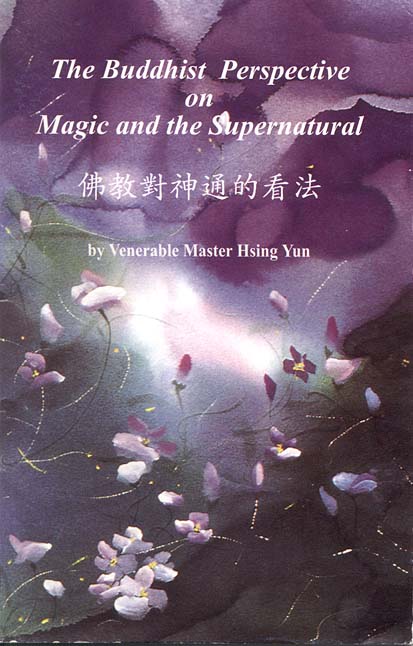
When someone hits or curses us, would it not be great if we were martial arts masters? We could use one little finger to pin the person down. When being chased, would it not be wonderful if we could fly? We could easily escape the calamity. When someone wants to cause trouble, would it not be great if I could whisper a spell to make him immobile? When a rich person does not believe in doing good, would it not be nice if I could magically gather his money and give it to the poor and needy?
 According to the scriptures, magic is a supernormal, unlimited, unimaginable power attained during meditation practice. We often believe that only the Buddha, Bodhisattvas, gods, or fairies have magical or supernatural power. In actuality, ghosts and demons can also have magical power. We humans have magical power, too.
According to the scriptures, magic is a supernormal, unlimited, unimaginable power attained during meditation practice. We often believe that only the Buddha, Bodhisattvas, gods, or fairies have magical or supernatural power. In actuality, ghosts and demons can also have magical power. We humans have magical power, too. Magic is not limited to the unusual acts of causing rain and storms or riding on clouds. Magic is everywhere in our lives. We can recognize it if we look carefully. When we are exhausted and thirsty after a long journey, a glass of water can quench our thirst. Is that glass of water not like a magic potion? A non-swimmer sinks like a rock after falling into water despite a frantic struggle.
In comparison, a good swimmer simply makes a few easy strokes and kicks to move around like a fish. Is this not miraculous? Beginning bicyclists may grip the handles with all their might and still fall off their bicycles. The experts can let their hands go and remain securely on their fast moving bicycles. Does this not seem supernatural?
A woman’s mammary glands not only secrete milk but also vary the nutrient composition and amount according to the changing needs of the baby. Once the baby stops nursing, all milk production stops automatically. Is this not amazing? Magic is not limited to tricks and sorcery; it is everywhere. The change of the four seasons, the blooming and wilting of flowers, the changing faces of the moon, the large and small sizes of animals, are they not all expressions of magical wonders?
Magical wonders are all around us. How many types of magical powers are recorded in the Buddhist scriptures? According to the most common classification, there are six main categories. These are celestial [divine] vision, celestial hearing, the power of knowing others’ minds, the power of performing miracles, the power of knowing past lives, and the power of eradicating all defilements. More>>





















































































































































































































































No comments:
Post a Comment